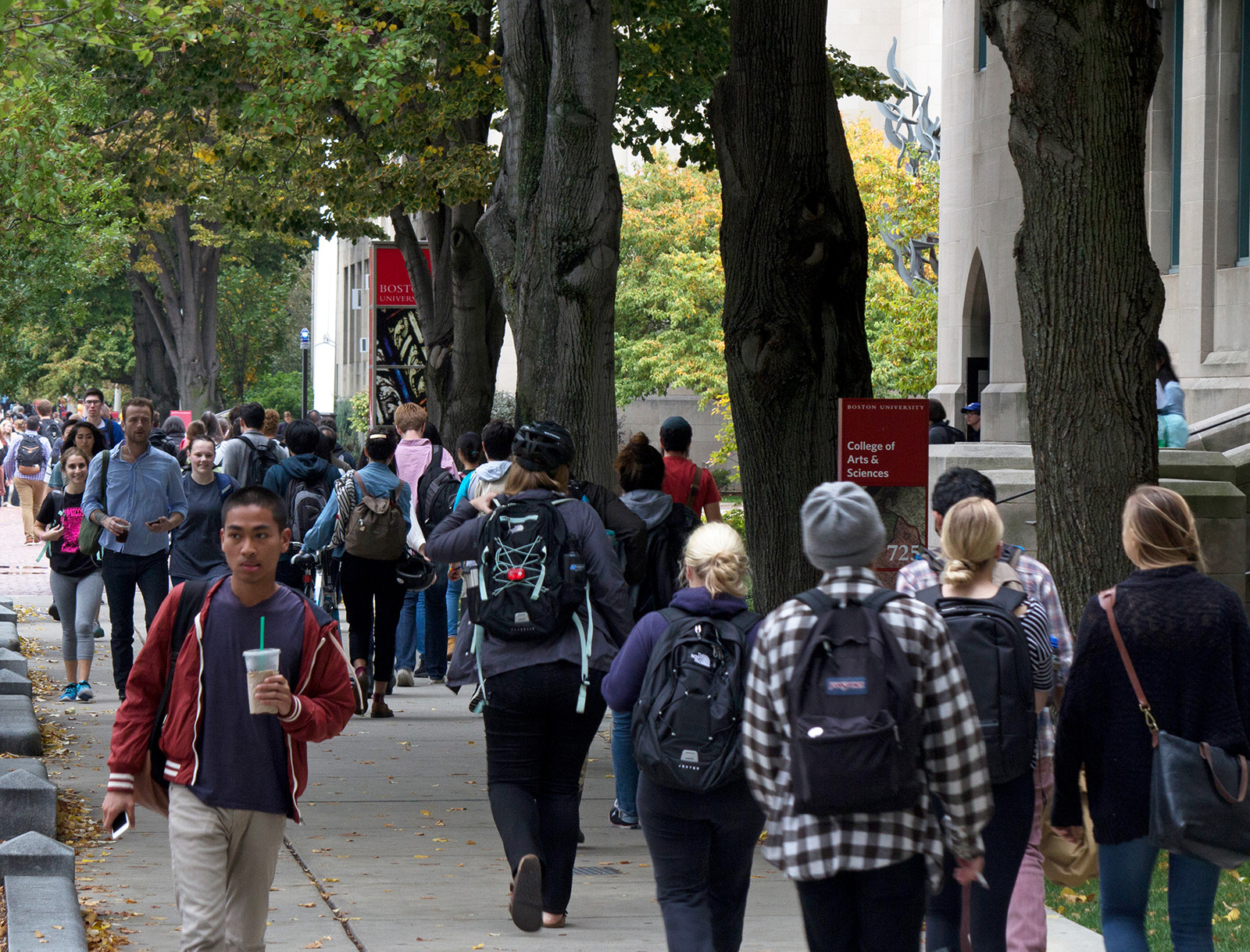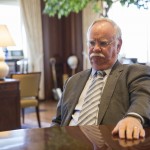
Boston University announced Tuesday the creation of a Task Force on Faculty Diversity and Inclusion. In a letter sent to faculty and staff in August, the task force laid out its goals and described how members hope to investigate the ways BU recruits and retains professors of minority backgrounds.
Steve Brady is the chair of the Faculty Council and a professor of psychiatry in the School of Medicine, and Gene Jarrett is co-chair of the task force and a professor of English in the College of Arts and Sciences. The rest of the task force is comprised of 16 other BU faculty and staff members.
“The Task Force on Faculty Diversity and Inclusion is part of a multi-faceted effort that will consider new approaches to faculty recruitment and retention and the fostering of a more inclusive community,” the letter stated. “The Task Force is charged with facilitating a set of University-wide discussions about how BU can become the diverse, inclusive community of faculty we envision, and developing recommendations that will help us achieve this goal.”
Task force member and School of Public Health professor Yvette Cozier said that the task force is concerned with analyzing and learning from BU’s current hiring practices and the practices of other universities.
“[We want to find] what we do at BU, what are the best practices at other universities, what we can adopt and what we can do to really change this from happening,” Cozier said. “If we attract faculty of color, will they stay? And if they stay, are there barriers to their being as successful and happy? [The task force] is an opportunity to look inward and see what are our mechanics.”
Cozier said that having a more diverse faculty can benefit students of all backgrounds.
“Minority students of color are used to being taught by people who do not look like them and that is a valuable education both from a material and cultural point of view,” she said. “It’s equally valuable for majority students to gain the perspective and experience of other people who don’t look like them.”
Currently, the task force members are meeting several times a month. They have a Feb. 1, 2016, deadline to create a preliminary report, and are planning to deliver a full report to BU President Robert Brown and Provost Jean Morrison by May 1, 2016.
Caitlyn Higgins, a junior in the College of Communication, said that she has noticed that the BU faculty is not nearly as diverse as the student body.
“There’s a lot more diversity among the students than the faculty,” Higgins said. “I have a lot of classes with a lot of different kinds of people from different backgrounds. I think similarly diversity among the faculty would create more opportunities to learn about different cultures and the way different people think.”
Megan Neely, a sophomore in the College of General Studies, said that she has also noticed a lack of diversity among her professors.
“I would definitely say that a lot of my professors have been white males and white females. I’ve only ever had one professor who I believe was of Hispanic descent but other than that I don’t see that many professors who are of a diverse background,” she said. “Different people of different cultures can bring different things to the educational table so to speak.”
Hanaan Yazdi, a sophomore in the CAS, said that she is concerned that a lack of faculty diversity can lead to students not being able to relate to their professors.
“In general, diversity is very important to me just because I feel like it’s important for the professors to bring in different perspectives, but I think it’s also important in terms of relate-ability to students,” Yazdi said. “So if students only ever see professors of a certain race, I feel like they won’t be as likely to see themselves in that position or profession.”
Conversely, Michael Abrams, a sophomore in CGS, said that he was impressed by the geographic diversity of his professors.
“I wouldn’t say that I see that diversity is lacking nor do I think it bothers me, but I haven’t had much experience at BU to know that. I think that generally the professors are pretty diverse,” Abrams said. “I’ve had professors from Ireland, some from different parts of the country that have come to Boston so that’s pretty diverse. I think it’s affected my academic time here because it’s given me different perspectives in areas that they’re teaching.”




